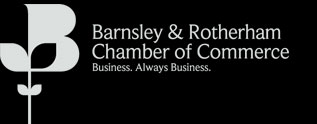
Scams have existed throughout human history, but with the internet and the popularity of smartphones, they have become more and more common. Now, scammers can target hundreds of thousands of people at once. They only need a few people to be unwittingly caught out to make it worth their while.
Scams are constantly evolving and developing. While some can trace their origins to postal scams, others are creations of the internet age, trying to trick people with convincing looking bank login pages. It’s impossible to list every scam there is, but you will almost certainly recognise some of the most common scams.
Phishing
Phishing scams have proliferated with advances in communication technology. These are often sent out using text messages or email. They ‘phish’ for victims by asking them to log in to their bank account. However, the site you are directed to will be run by scammers, so they can harvest your details. Banks will never ask you to log in, so when you get a message like that, never follow the link. Always make sure you visit your bank’s site by typing the address directly.
Investment and pension scams
These come in different forms but will usually promise stunning returns on your investment. At a time when interest rates are low and some more traditional investments may not be performing well in a sluggish economy, these can be very tempting. However, be very wary of unsolicited investment advice and deals that look too good to be true. There’s a good chance you might never see your cash again. Always make sure you deal with properly regulated institutions. If you have any doubt, seek the advice of a trust professional.
Money mules
Money mules are asked to act as an intermediary for someone else’s money, receiving and then passing on cash in return for a fee. This may be a scam, but it might also be illegal money laundering. Even if you get paid, you might find yourself in trouble with the law.
Those that are pure scams are sometimes called 419 scams, in these you will be asked to help remove some money, often from a troubled regime. These usually start small, perhaps with a bank fee, but the amounts get bigger and bigger, as your correspondent keeps ‘encountering’ more charges and difficult officials they need to bribe, but never quite gets their money out.
Scam sales
You should always be careful when using sites like eBay. While these are usually reliable, they can be used by scammers, posing as either buyers or sellers, who are only interested in getting the cash. If you are selling something, always make sure the money has cleared before sending goods. When you are buying, make sure you use reliable buyers and a payment method that offers you some protection.
Tech support
Finally, never, ever trust an unsolicited pop-up or phone call offering you tech support. These schemes use the fact that many people have their whole lives on a computer. They will often have used a virus or malware to install the pop-up on an unsuspecting person’s computer. They will then offer support to help remove it but use that as an opportunity to gather even more information and scam the ‘customer’.
Useful tips
Because most common scams constantly change and evolve, it’s impossible to detail all the tell-tale signs, and some can be quite convincing. The key thing to remember is to always be suspicious of any unsolicited request to log into anything, offers that will make you rich, or financial dealings with an unknown individual. Reputable institutions and professionals will never ask for private details, like logins, so if you have any doubt, stop, wait, and seek advice.
Next steps
Call us on 0114 345 0960 or email info@millhouses-accountancy.co.uk for queries.
Read more on our Blog.






